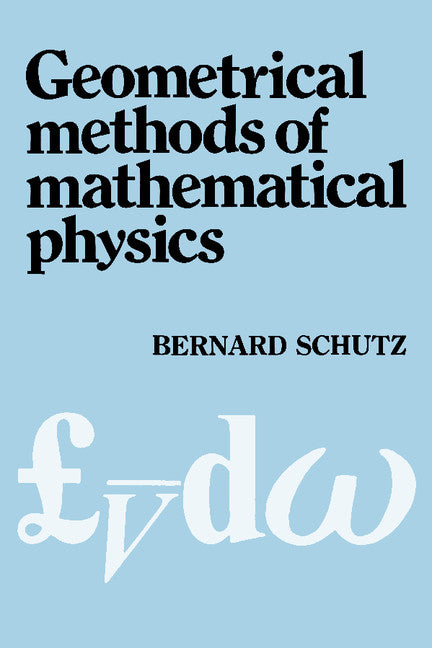Freshly Printed - allow 8 days lead
Couldn't load pickup availability
Geometrical Methods of Mathematical Physics
Bernard F. Schutz (Author)
9780521298872, Cambridge University Press
Paperback, published 28 January 1980
264 pages
23.2 x 15.1 x 1.8 cm, 0.41 kg
'Although there are a welter of books where similar material can be found, this book is the most lucid I have come across at this level of exposition. It is eminently suitable for a graduate course (indeed, the more academically able undergraduate should be about to cope with most of it), and the applications should suffice to persuade any physicist or applied mathematician of its importance … Schutz's book is a triumph …' The Times Higher Education Supplement
In recent years the methods of modern differential geometry have become of considerable importance in theoretical physics and have found application in relativity and cosmology, high-energy physics and field theory, thermodynamics, fluid dynamics and mechanics. This textbook provides an introduction to these methods - in particular Lie derivatives, Lie groups and differential forms - and covers their extensive applications to theoretical physics. The reader is assumed to have some familiarity with advanced calculus, linear algebra and a little elementary operator theory. The advanced physics undergraduate should therefore find the presentation quite accessible. This account will prove valuable for those with backgrounds in physics and applied mathematics who desire an introduction to the subject. Having studied the book, the reader will be able to comprehend research papers that use this mathematics and follow more advanced pure-mathematical expositions.
Preface
1. Some basic mathematics
2. Differentiable manifolds and tensors
3. Lie derivatives and Lie groups
4. Differential forms
5. Applications in physics
6. Connections for Riemannian manifolds and gauge theories
Appendix
Notation
Index.
Subject Areas: Maths for engineers [TBJ], Physics [PH], Maths for scientists [PDE]


